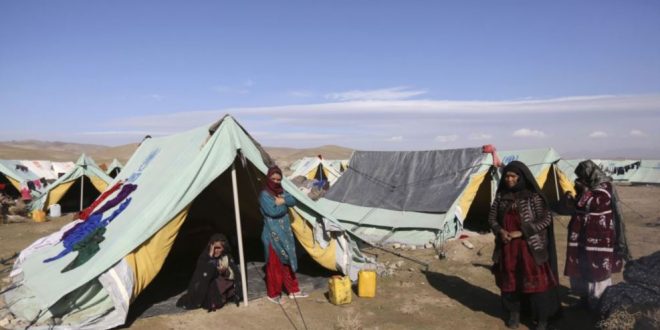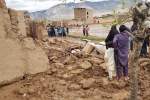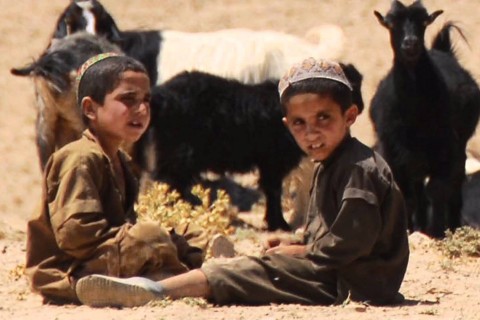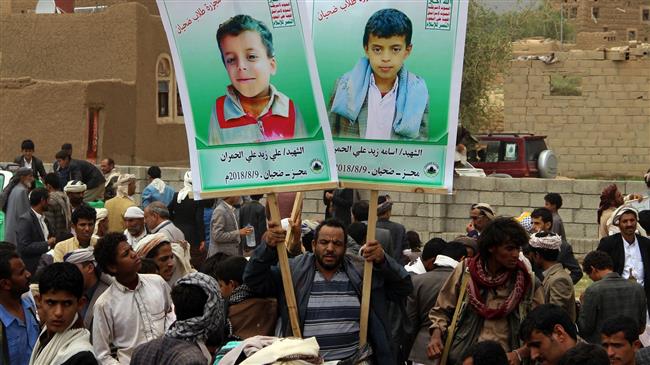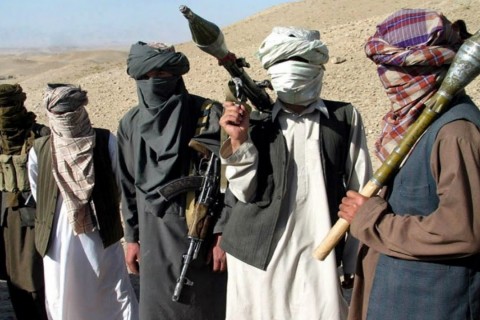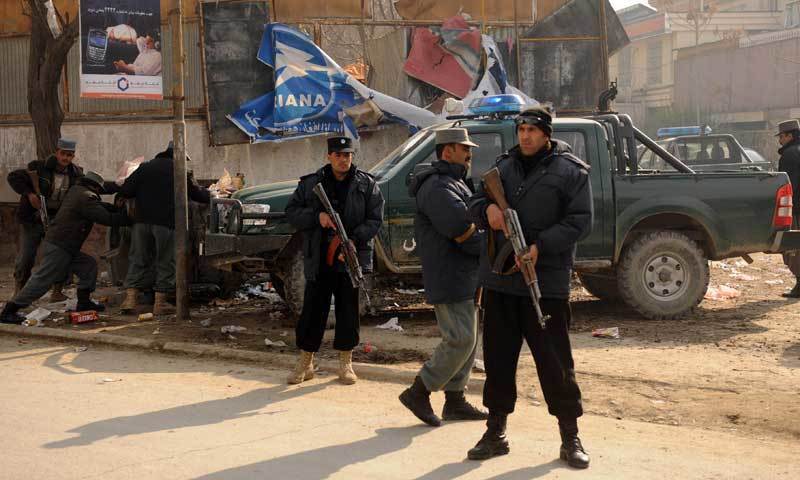A number of internally-displaced persons (IDPs) in western Herat province say no one including the government has helped them and they are forced to sell their children for survival.
Publish dateTuesday 4 December 2018 - 00:31
Story Code : 175225
AVA- Sahib Dad, a resident of Muqor district of Badghis who has been displaced to Shadayee area of Herat City along with other people, is currently living in a tent. He told media he has 11 children but recently he sold his little daughter against 50,000 Afghanis.
While tears rolling down his face, the man said: “I sold my daughter because I am sick and I had no money to fetch food for my family. If anyone is interested, I will sell my other children too.”
Without having any hopes for future, Sahib Dad, who looked sad said if anyone, even security officials and the reporter who interviewed him, wanted to buy his children, he would sell them.
A number of other IDPs living in Sahib Dad’s neighborhood confirmed his story and said the displaced families from Badghis to Herat fled conflicts and drought and they were now forced to sell their children for survival.
Mohammad Nasim, a resident of Aabkamari district of Badghis province and a representative of 352 displaced families in Herat, said they were assisted only once when the government paid them 6,000 Afghanis in cash.
“We will sell our children if we do not receive help, we will use that money to migrate to Iran or Pakistan and get rid of these problems,” he said.
While pointing to a graveyard, he said: “Let’s go to that graveyard where children who died of hunger and miseries are buried.”
Mohammad, another displaced person, said: “My two-year-old daughter is seriously ill due to coldness, I have no money to treat her. I am ready to sell her to someone for her survival.”
He said children were always loved by their parents but problems the families suffered during displacement were as serious as compelled them to sell their beloved ones.
UNICEF recently in a report said 161 children were sold or given in marriages to drought in Herat and Badghis provinces.
UNICEF spokesman Alison Parker on last Tuesday in Geneva conference said that the Afghan children sold or married were aged between one month to 16 years.
He termed children’s situation in Afghanistan as critical and said: “According to a survey conducted between July to October this year, families sold their children or engaged them to someone in order to pay their loans.”
The report focused on children’s situation in Herat and Badghis provinces says infant girls and girls aged up to 11 years were forced for marriage and boys aged above six years were also sold.
Herat local administration neither rejects nor confirms children’s selling, but says such acts are against the law and families should avoid it.
Herat governor Mohammad Asif Rahimi said they did not have accurate information about the number of children sold. “It is against the law and a crime to r under any circumstances,” he said.
However, Javid Naadim, head of the refugees and repatriation department of Herat, rejected selling of children and said they received such complaints which were found baseless after assessments.
“The issue of selling children due to economic problems is not true, we investigated one such case and we found the family had engaged their six years old daughter to someone,” he said.
Naadim said around 50,000 families from Badghis, Ghor and Faryab provinces had been displaced to Herat due to drought this year.
He said 16,000 of the families were eligible to receive assistance according to their surveys.
The survey is still ongoing about the displaced people and relief items are expected to reach the affected people in near future, he added.
Meanwhile, a number of Islamic scholars said selling children particularly girls was a crime against humanity.
Abdul Majid Samim, an Islamic scholar and lecturer of Sharia law in Herat University, said selling children was an act of violating minors’ rights and an act prohibited in Islam.
However, civil society activists say poverty is forcing people to do anything and no one would offer their children for sale if their livelihood is normal.
While tears rolling down his face, the man said: “I sold my daughter because I am sick and I had no money to fetch food for my family. If anyone is interested, I will sell my other children too.”
Without having any hopes for future, Sahib Dad, who looked sad said if anyone, even security officials and the reporter who interviewed him, wanted to buy his children, he would sell them.
A number of other IDPs living in Sahib Dad’s neighborhood confirmed his story and said the displaced families from Badghis to Herat fled conflicts and drought and they were now forced to sell their children for survival.
Mohammad Nasim, a resident of Aabkamari district of Badghis province and a representative of 352 displaced families in Herat, said they were assisted only once when the government paid them 6,000 Afghanis in cash.
“We will sell our children if we do not receive help, we will use that money to migrate to Iran or Pakistan and get rid of these problems,” he said.
While pointing to a graveyard, he said: “Let’s go to that graveyard where children who died of hunger and miseries are buried.”
Mohammad, another displaced person, said: “My two-year-old daughter is seriously ill due to coldness, I have no money to treat her. I am ready to sell her to someone for her survival.”
He said children were always loved by their parents but problems the families suffered during displacement were as serious as compelled them to sell their beloved ones.
UNICEF recently in a report said 161 children were sold or given in marriages to drought in Herat and Badghis provinces.
UNICEF spokesman Alison Parker on last Tuesday in Geneva conference said that the Afghan children sold or married were aged between one month to 16 years.
He termed children’s situation in Afghanistan as critical and said: “According to a survey conducted between July to October this year, families sold their children or engaged them to someone in order to pay their loans.”
The report focused on children’s situation in Herat and Badghis provinces says infant girls and girls aged up to 11 years were forced for marriage and boys aged above six years were also sold.
Herat local administration neither rejects nor confirms children’s selling, but says such acts are against the law and families should avoid it.
Herat governor Mohammad Asif Rahimi said they did not have accurate information about the number of children sold. “It is against the law and a crime to r under any circumstances,” he said.
However, Javid Naadim, head of the refugees and repatriation department of Herat, rejected selling of children and said they received such complaints which were found baseless after assessments.
“The issue of selling children due to economic problems is not true, we investigated one such case and we found the family had engaged their six years old daughter to someone,” he said.
Naadim said around 50,000 families from Badghis, Ghor and Faryab provinces had been displaced to Herat due to drought this year.
He said 16,000 of the families were eligible to receive assistance according to their surveys.
The survey is still ongoing about the displaced people and relief items are expected to reach the affected people in near future, he added.
Meanwhile, a number of Islamic scholars said selling children particularly girls was a crime against humanity.
Abdul Majid Samim, an Islamic scholar and lecturer of Sharia law in Herat University, said selling children was an act of violating minors’ rights and an act prohibited in Islam.
However, civil society activists say poverty is forcing people to do anything and no one would offer their children for sale if their livelihood is normal.
Source : خبرگزاری Afghn Voice Agency(AVA)
avapress.net/vdcb5sb8srhbz5p.4eur.html
Tags
Top hits
